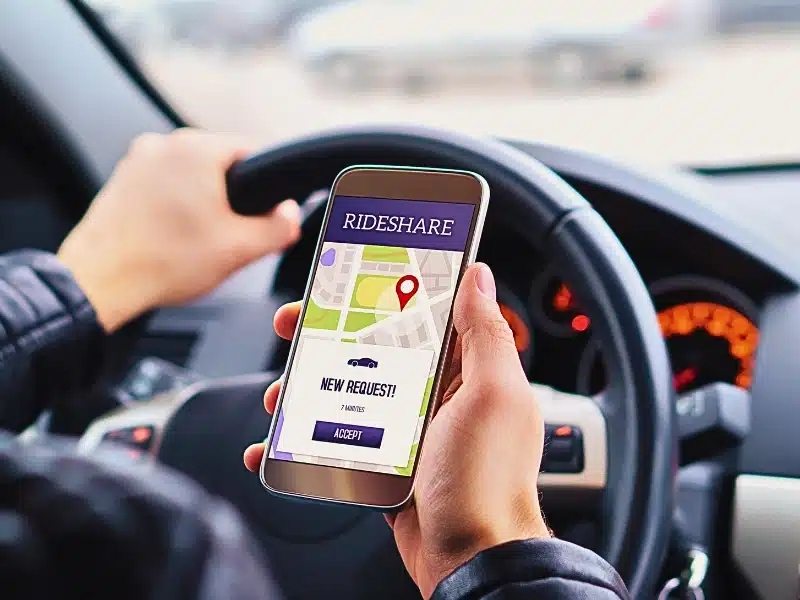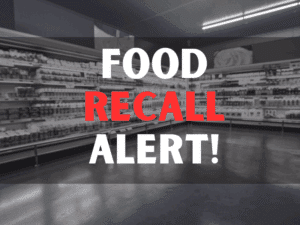Liability for pickup-zone crashes at Vegas resorts often depends on whether hotels, rideshare companies, or drivers failed to uphold their duty of care. This is the obligation to maintain safe conditions and prevent foreseeable harm.
In Las Vegas, resorts have a high duty of care because they invite large numbers of guests, tourists, and rideshare drivers into busy, confined spaces where congestion and confusion increase the chances of accidents.
George Bochanis Injury Law Offices can help after a pickup-zone accident in Las Vegas. Call us at (702) 388-2005.
Who Is Liable for Accidents in Hotel Valet and Rideshare Pickup Zones?
Liability for pickup-zone accidents at Vegas resorts depends on the facts of a crash. The party at fault may be the hotel, the valet company, the rideshare driver, another motorist, or a combination.
Hotel or Resort
Hotels may be liable because they must ensure their valet and rideshare pickup zones are reasonably safe. This safety means maintaining clear traffic flow, adequate lighting, signage, and staff supervision. If a hotel fails to control congestion or to take care of known safety hazards, such as a narrow driveway or lack of pedestrian space, it can be held liable under premises liability law.
Valet or Third-Party Contractors
Many valet operations are third-party vendors rather than hotel or resort employees. These third-party companies are responsible for training their employees, operating vehicles safely, and preventing valet accidents. If a valet driver causes a collision or damages a guest’s car, the company’s insurance typically covers the loss. However, if the resort negligently hired or retained an unsafe contractor, both the contractor and the hotel may share liability.
Hotel negligence in these situations often happens when the resort does not properly vet, supervise, or oversee the third-party valet company it hires. A resort might contract with a valet vendor that has a history of safety violations or inadequate employee training. If the hotel knew or should have known about these risks but ignored them, it may be negligent.
Rideshare Drivers and Companies
Drivers may cause or contribute to rideshare accidents when they rush to pick up or drop off passengers in crowded pickup lanes. Rideshare companies provide insurance coverage to some extent for drivers who are “active” on their apps, but the coverage depends on the stage of the ride. A rideshare injury lawyer can determine whether the driver’s personal insurance or the rideshare company’s commercial policy applies in a crash.
Other Motorists or Pedestrians
In some cases, other drivers or even pedestrians contribute to an accident. For example, a pedestrian darting among cars may cause a driver to swerve and hit another vehicle.
Understanding Premises Liability at Las Vegas Resort Pickup Areas
In April 2025, Harry Reid International Airport saw about 4,716,039 passengers. Many of these people also traveled to hotels and resorts in the area. Common hazards in resort pickup areas include:
- Poor lighting, especially at night or in covered areas
- Inadequate traffic signage or unclear lane markings
- Slippery pavement or oil slicks from parked cars
- Lack of speed control, signs, or directional assistance
- Failure to separate pedestrian and vehicle traffic
- Overcrowding during events or peak hours
A hotel injury lawyer can help injured guests or visitors prove that a resort breached its duty of care by failing to fix or warn about known dangers. Evidence often includes surveillance footage, accident reports, witness statements, and maintenance records showing whether the hotel knew about previous incidents in the same zone.
Being injured as a tourist in a valet or rideshare area can add complexity to a case. However, a hotel’s duty of care extends equally to tourists, meaning hotels cannot excuse unsafe conditions simply because guests are new to the area.
When Hotels and Rideshare Companies Share Responsibility for Pickup-Zone Injuries
Multiple parties may share responsibility in pickup-zone crashes at Vegas resorts. For instance, a hotel may fail to manage vehicle flow while a rideshare driver speeds through a congested area. In such cases, injured people may pursue claims against the property, the driver, and the rideshare company, depending on their respective roles in causing the injury.
Take a tourist who waits at the designated pickup spot outside a Strip resort. The area lacks visible barriers separating pedestrians from moving traffic. A rideshare driver, rushing to collect a fare, strikes the pedestrian while maneuvering between cars. Here, the hotel could be liable for failing to maintain safe pedestrian zones, and the driver and rideshare company could share liability because the driver was negligent while on duty.
Insurance Overlap and Car Accident Timeline
Insurance coverage may depend on the timing and sequence of events. For example, before pickup, the rideshare driver’s personal policy might apply. During pickup or dropoff, the rideshare company’s limited liability policy might cover a crash. When a passenger is in the car, the rideshare company’s full commercial policy typically applies. This car accident timeline of coverage is important when pursuing compensation.
Pickup-zone crashes at Vegas resorts can be scary. George Bochanis Injury Law Offices can help after an accident in Las Vegas. Contact us today.
FAQs About Pickup-Zone Crashes at Vegas Resorts
Can I sue a Las Vegas hotel for an accident in its valet or rideshare pickup area?
If the hotel’s negligence, such as poor lighting, unsafe traffic flow, or lack of signage, contributed to your injury, you can sue under premises liability law.
Who is at fault if I’m hit by a car in a casino rideshare zone?
Primary fault may lie with the driver, the rideshare company, or the resort, depending on who failed to exercise reasonable care in keeping the pickup zone safe. Multiple parties can combine for shared liability.
What duty of care do Vegas resorts owe to guests in pickup and drop-off areas?
Resorts must keep these areas safe, well-lit, well-marked, and adequately supervised to prevent foreseeable harm.




